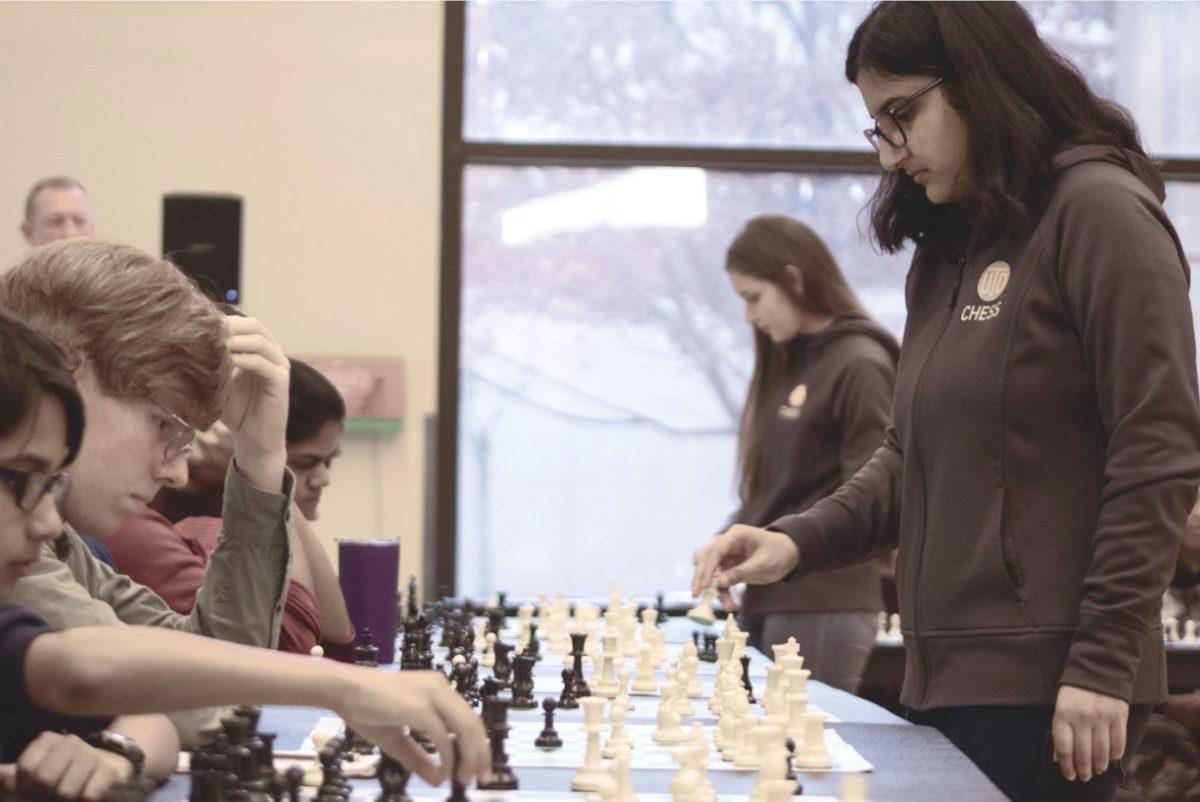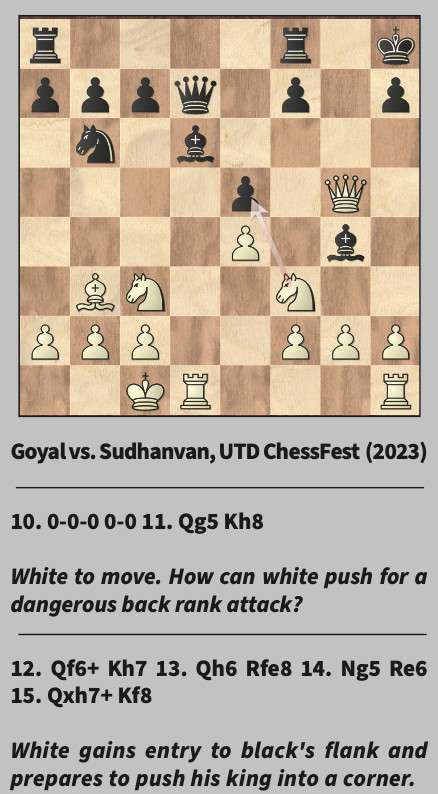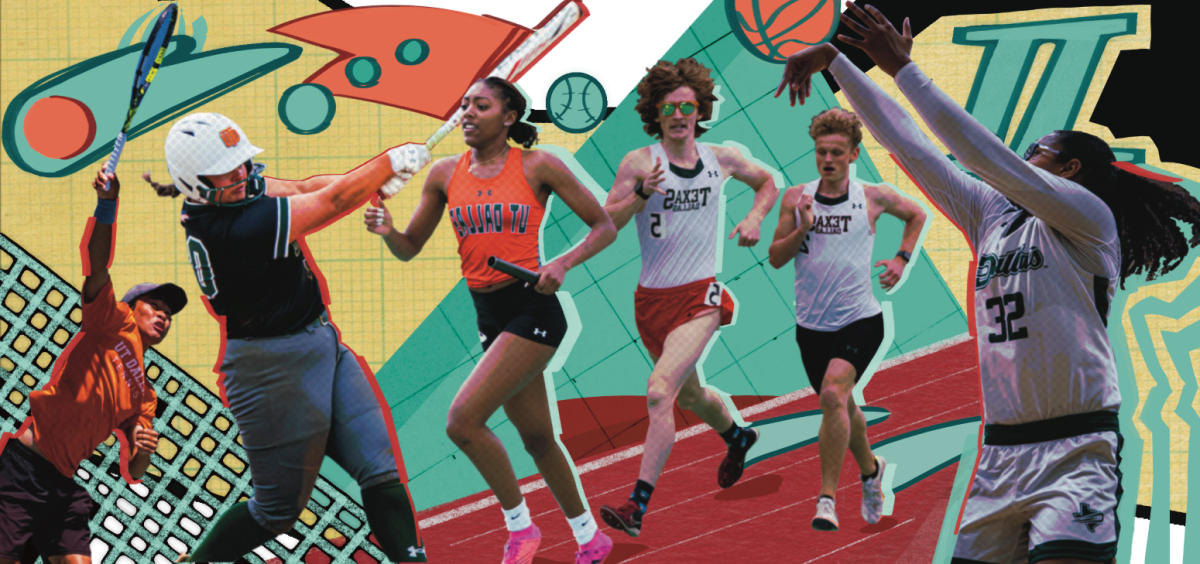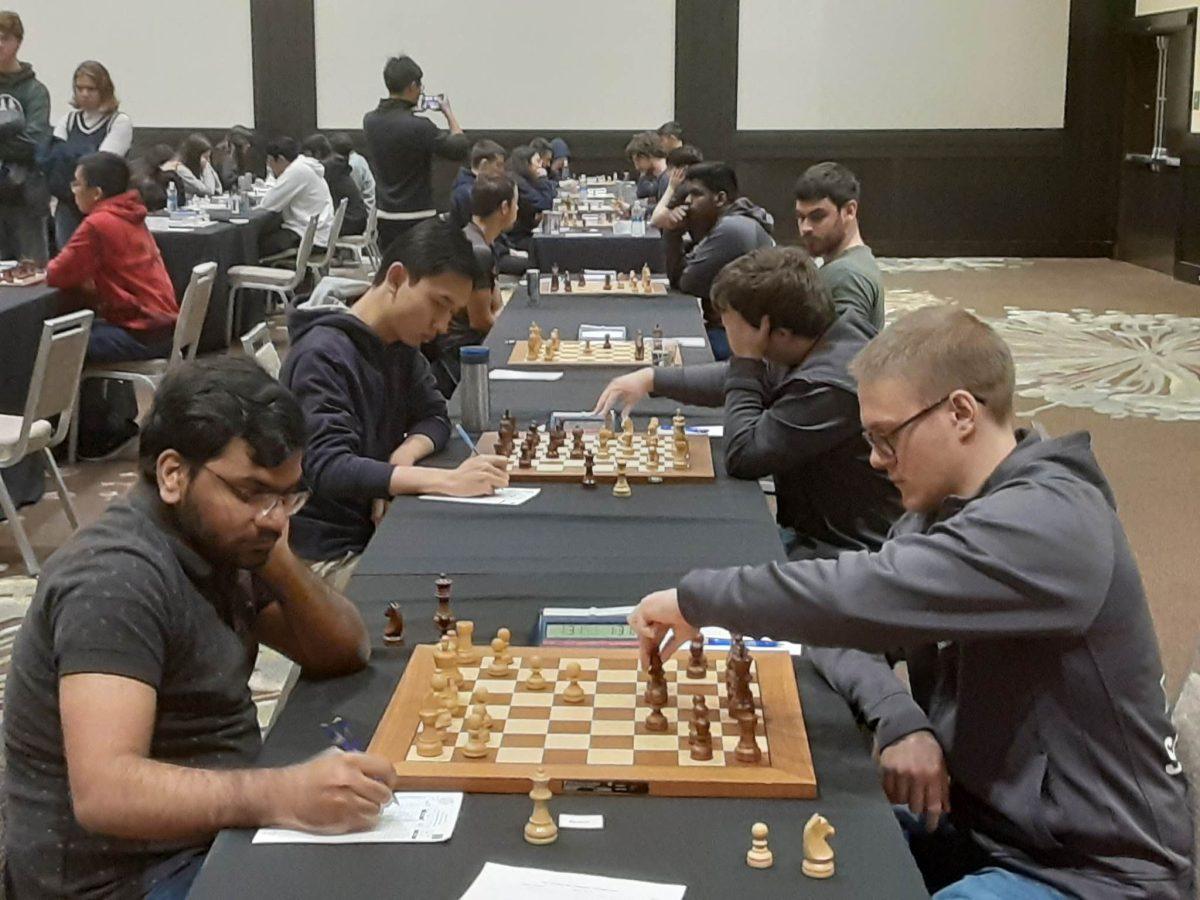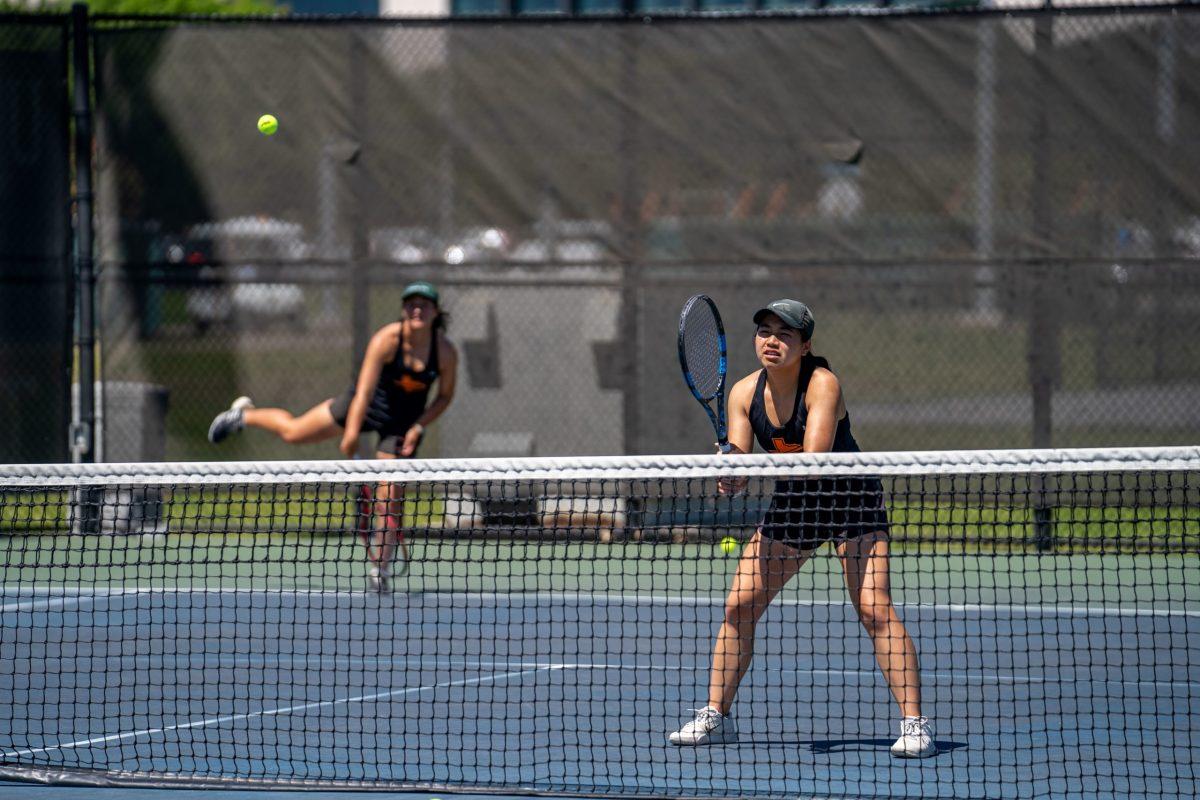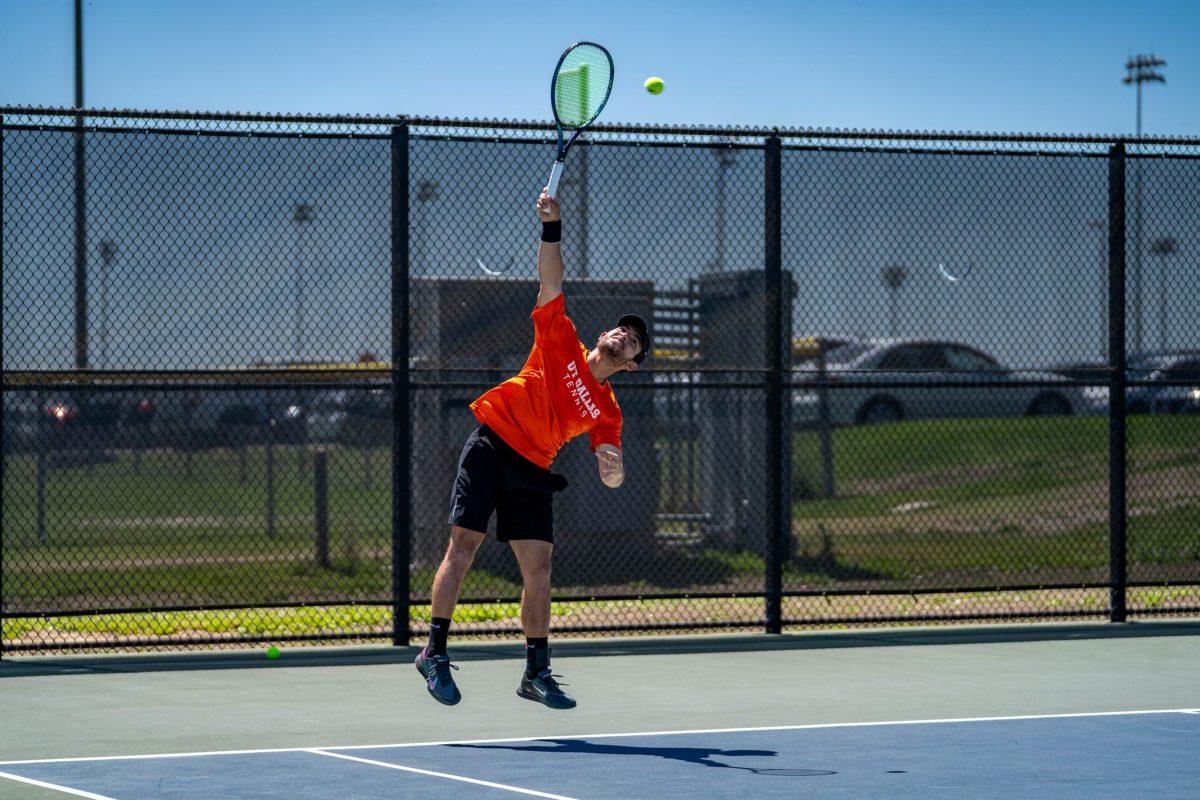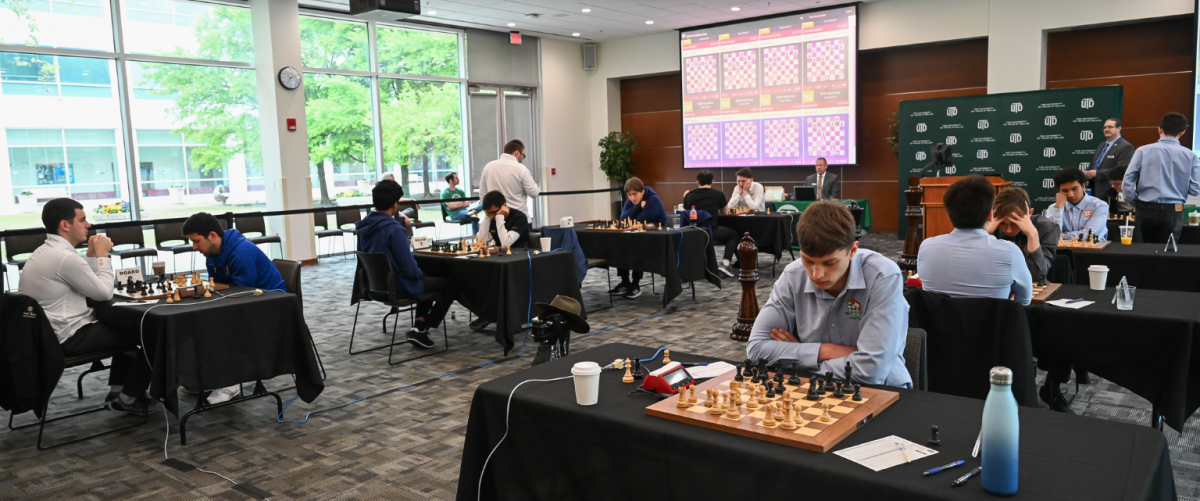UTD students competed in a chess simultaneous exhibition on Feb. 20 in the SU against two international masters.
A simultaneous exhibition, or simul, is where several players all face one advanced player. The advanced player moves from board to board, making a new move in each game one by one. At the Feb. 20 event, two simuls were held. In the first round, 30 students participated. 15 faced off against business administration freshman and international master (IM) Gergana Peycheva, and 15 students faced off against business analytics graduate student and IM Tarini Goyal. Those who lost were replaced by new participants. In total, Peycheva won all 19 of her games (+19), and Goyal won 16 games and drew one game (+16.5).
This was Goyal’s first time at a simul. Despite being nervous to play in front of a crowd, Goyal said that she found it enjoyable and mostly participated for fun, with little preparation. Goyal said that it served the greater goals of the chess programs.
“With the chess fest, it’s more for the UTD students and not for myself. So the goals are in alignment with what’s good for the bigger audience. So, we want more people interested in chess, we want people to be happy participating in chess related events.”
Peycheva led the beginning of the game with a significant material advantage on several boards. She also made the first checkmate of the simul on board five after only 50 minutes, prompting board nine to resign. Peycheva said that she planned opening moves in advance and tried to play a similar position on each board.
“I got good positions in almost all the boards … I was hoping, of course, for this because I play white,” Peycheva said. “So usually, when you [play] white, it’s easier to get an advantage. But some of the people here did very well.”
Goyal also opened several games with significant leads, including a 12 point material lead on one board by move eight. Goyal said that she expected an advantage in some games, especially against players who had little experience against stronger opponents, but that she tried to remain cautious and keep her options open.
“Normally, I’m a d4 player,” Goyal said. “That’s what I go for. But, as I told you, I wanted to try different things, so I have different setups and get different games. Some of the games, I ended up having a very similar setup, and that was also very interesting, because different players responded differently.”
Goyal won all of her matches except the first board in the first round, where she drew against computer science senior Amanuel Shiferaw. Shiferaw said that he played reactively in response to Goyal and tried to keep the game closed — meaning create a pawn structure that blocks piece movement — with the intention of forcing her to think.
“It feels pretty good,” Shiferaw said. “I didn’t expect it at all. She played a very good game … I’m happy as long as I played a decent game, which I think I did. So I’ll take it.”
Goyal said that her drawn game with Shiferaw progressed slowly as he was playing very logically. Goyal reflected that since Shiferaw kept the game closed, there were extra barriers for piece development.
“I should have probably opened up the position sooner, very early on when I had the chance, instead of making my pieces stuck. And he was putting up a good resistance for the longest time. At some point he blundered, but I just didn’t notice because I was thinking I’ll do that round fast … Kudos to him, because he was playing very logical moves throughout the game.”
Shiferaw said that he was drawn to the simul because of the community engagement brought by the chess program.
“I haven’t played chess in a while, and I really missed it, and seeing everyone getting together over chess was nice. So I had to join it.”
Goyal said that she hopes the chess program can host another simul in the future with more boards and stronger players. Peycheva said that she enjoyed her experience at the event and gave thanks to the organizers.
“Our Coach Julio, [Jim] Stallings and Tim Steiner, they did a great job … I hope everyone enjoyed, and thanks to everyone who helped us to organize this event,” Peycheva said.

